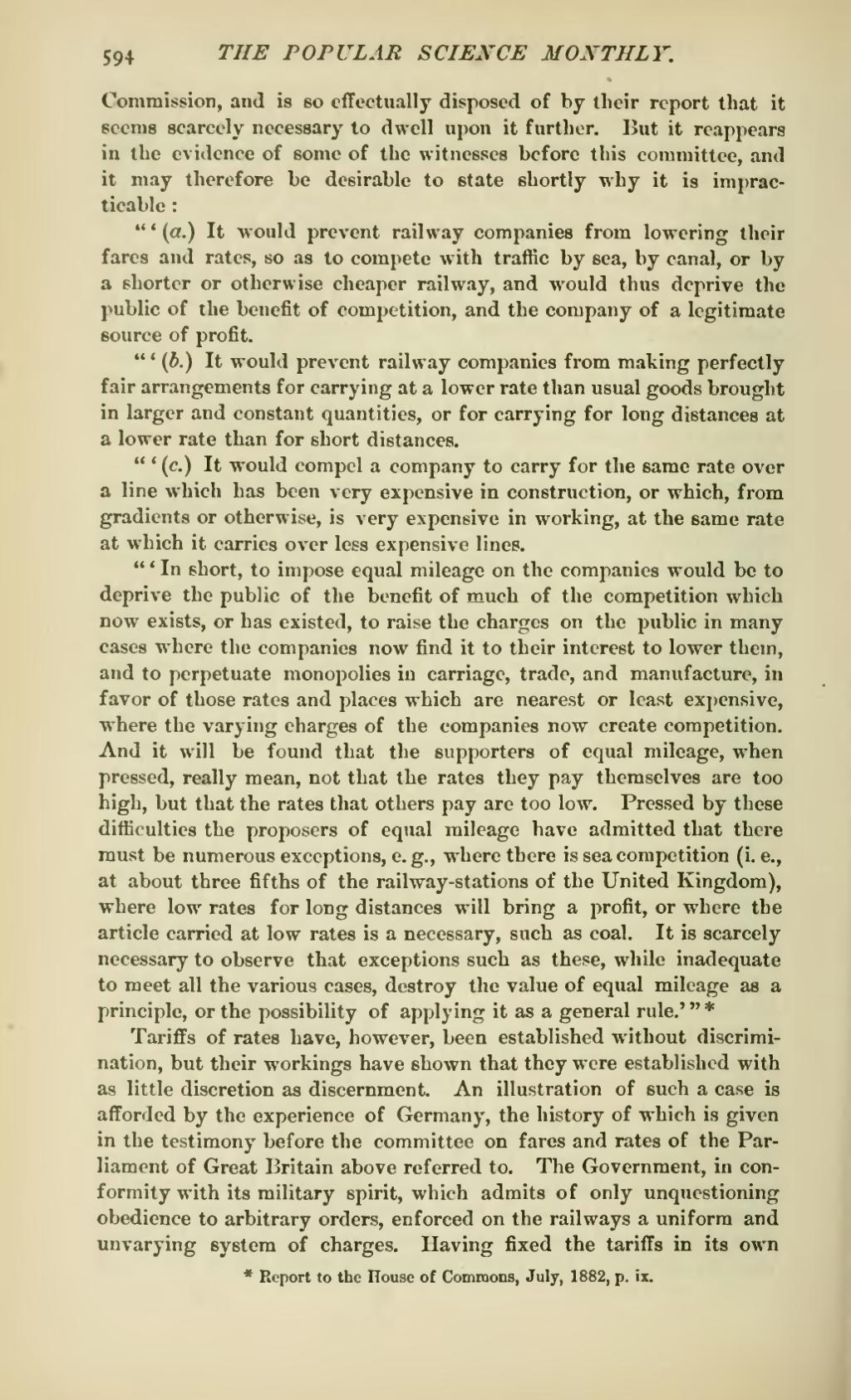Commission, and is so effectually disposed of by their report that it seems scarcely necessary to dwell upon it further. But it reappears in the evidence of some of the witnesses before this committee, and it may therefore be desirable to state shortly why it is impracticable:
"'(a.) It would prevent railway companies from lowering their fares and rates, so as to compete with traffic by sea, by canal, or by a shorter or otherwise cheaper railway, and would thus deprive the public of the benefit of competition, and the company of a legitimate source of profit.
"'(b.) It would prevent railway companies from making perfectly fair arrangements for carrying at a lower rate than usual goods brought in larger and constant quantities, or for carrying for long distances at a lower rate than for short distances.
"'(c.) It would compel a company to carry for the same rate over a line which has been very expensive in construction, or which, from gradients or otherwise, is very expensive in working, at the same rate at which it carries over less expensive lines.
"'In short, to impose equal mileage on the companies would be to deprive the public of the benefit of much of the competition which now exists, or has existed, to raise the charges on the public in many cases where the companies now find it to their interest to lower them, and to perpetuate monopolies in carriage, trade, and manufacture, in favor of those rates and places which are nearest or least expensive, where the varying charges of the companies now create competition. And it will be found that the supporters of equal mileage, when pressed, really mean, not that the rates they pay themselves are too high, but that the rates that others pay are too low. Pressed by these difficulties the proposers of equal mileage have admitted that there must be numerous exceptions, e. g., where there is sea competition (i. e., at about three fifths of the railway-stations of the United Kingdom), where low rates for long distances will bring a profit, or where the article carried at low rates is a necessary, such as coal. It is scarcely necessary to observe that exceptions such as these, while inadequate to meet all the various cases, destroy the value of equal mileage as a principle, or the possibility of applying it as a general rule.'"[1]
Tariffs of rates have, however, been established without discrimination, but their workings have shown that they were established with as little discretion as discernment. An illustration of such a case is afforded by the experience of Germany, the history of which is given in the testimony before the committee on fares and rates of the Parliament of Great Britain above referred to. The Government, in conformity with its military spirit, which admits of only unquestioning obedience to arbitrary orders, enforced on the railways a uniform and unvarying system of charges. Having fixed the tariffs in its own
- ↑ Report to the House of Commons, July, 1882, p. ix.
